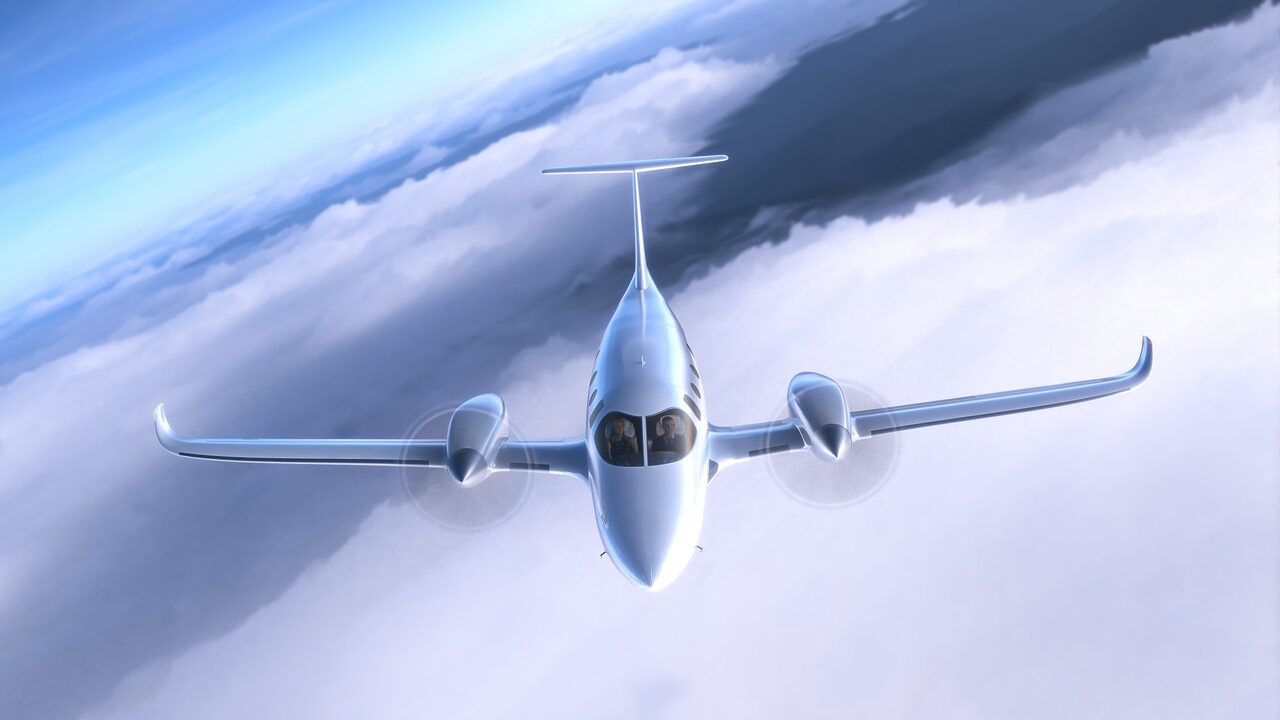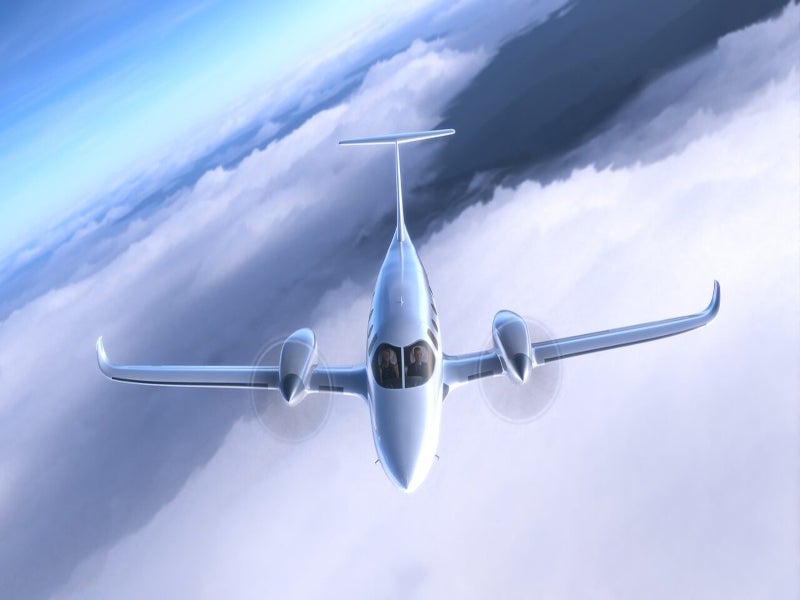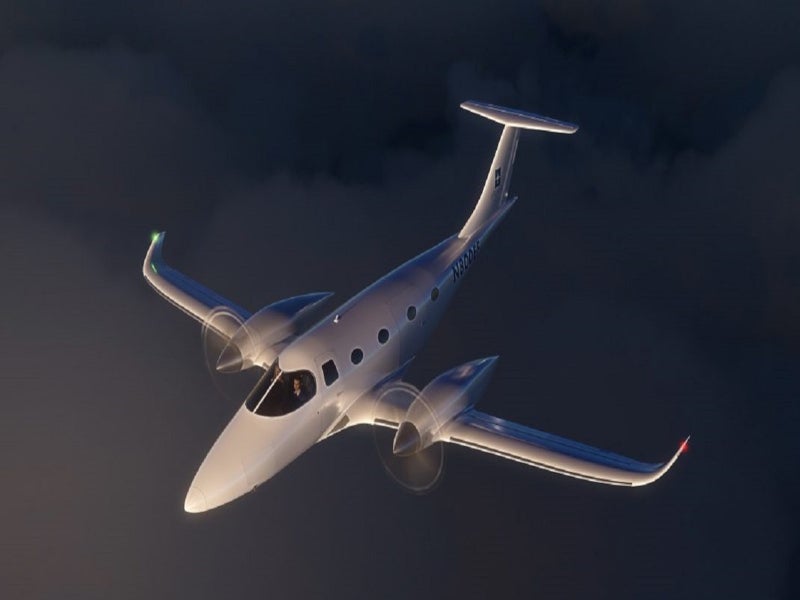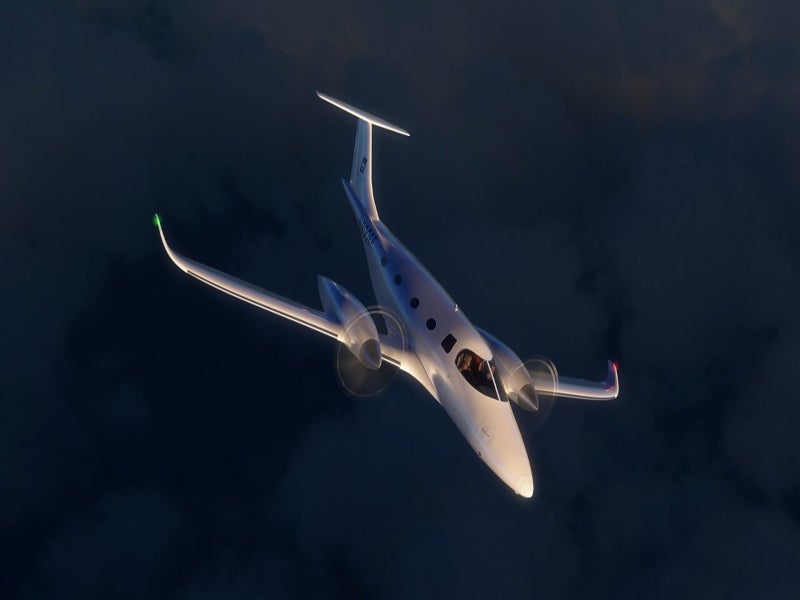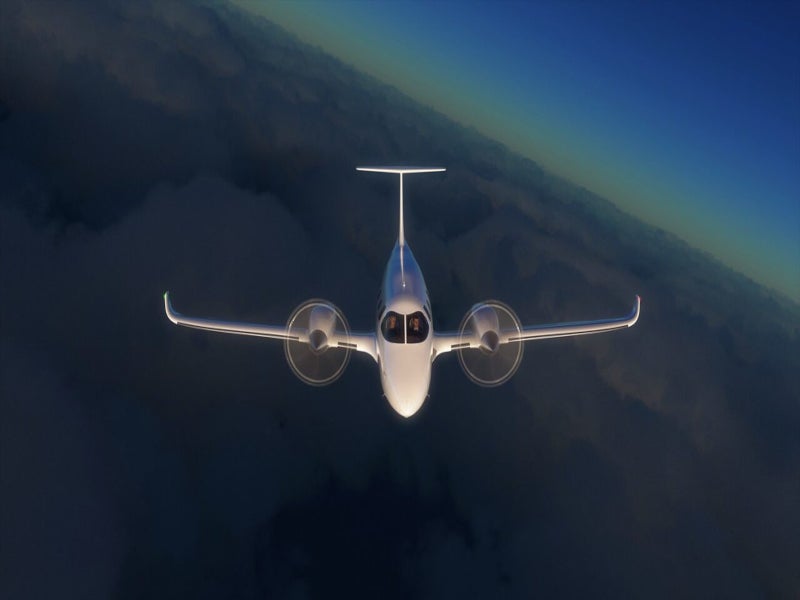Bye Aerospace launched the eFlyer 800 in April 2021. An eight-seat, all-electric aircraft, it was designed to meet the demand for a regional all-electric aircraft with increased passenger capacity and reduced operating costs.
The eFlyer 800 is claimed to be the first all-electric propulsion aircraft to achieve twin-turboprop performance and safety without carbon emissions.
The electric propulsion system and advanced battery cell technology improve the performance and reduce the operating costs of the eFlyer 800 to about one-fifth compared to traditional twin turboprops. The state-of-the-art battery cell technology further ensures substantially higher energy densities.
Bye Aerospace has signed customer deposit agreements for several eFlyer 800 aircraft. Once operational the aircraft will serve as air-taxi, air-cargo, regional and charter aircraft in the US and Europe.
In June 2021, Bye Aerospace signed an agreement with the launch customers Jet It and JetClub to supply a fleet of eFlyer 800 aircraft. The fractional ownership companies also confirmed multiple eFlyer 800 purchase options and purchase deposits for four eFlyer 4 aircraft.
Design and features of eFlyer 800
The innovative design of eFlyer 800 will offer significantly higher aerodynamic efficiency than that of a typical turboprop aircraft of similar size. The fuselage will be attached with two wing-mounted electric motors, each integrated with dual redundant motor windings and quad-redundant battery packs.
The eight-seat cabin configuration of the aircraft will offer space for seven passengers and up to two crew members. The cabin will measure 65in wide and 55in tall.
The all-electric aircraft will also feature a full aeroplane parachute, with potential for an emergency auto-landing system, optional supplemental power solar cells and in-wheel electric taxi. It also uses an intelligent algorithm that provides envelope protection, terrain avoidance and re-routing for emergency auto-landing.
eFlyer 800’s electric propulsion
The all-electric aircraft will be powered by Safran’s dual ENGINeUS electric motors and GENeUSGRID electric distribution and network protection system. Safran also supplies propulsion systems for the eFlyer family of aircraft, eFlyer 2 and eFlyer 4.
The GENeUSGRID power management system will control the electrical equipment aboard the aircraft and manage the high voltage generators and batteries for continuous power supply to the electric propulsion motors. It will also facilitate switching processes between the all-electric and hybrid-electric architecture.
The assessment to equip the eFlyer 800 aircraft with the most efficient electric powertrain is currently underway.
ENGINeUS smart motors details
Launched in October 2018, Safran’s ENGINeUS smart motor has built-in control electronics with an energy efficiency of more than 94%. It offers a very high power-to-weight ratio and highly integrated power electronic drive for controlling the shaft speed.
The motor has a customised power rating from 45kW and can provide a power density of more than 2.5kW/kg at 2,500rpm for 45kW continuous power.
The electric motor offers several advantages, including an integrated power electronics inverter within the electrical machine and remote or embedded control board. It is also lighter, more economical and easier for A/C integration compared to a split inverter solution.
The motor has air cooling feasibility up to 100kW, with liquid cooling as a proposed option. The cooling system is common for both the motor and motor controller unit. The system does not require an additional gearbox between the motor and the propeller. The sealed design of the motor withstands harsh environments.
The ENGINeUS motors with a power rating between 50kW and 500kW/1MW in combination with the GENeUSGRID systems perfectly suit Bye Aerospace’s electric aircraft portfolio.
Performance of eFlyer 800 all-electric aircraft
The eFlyer 800 will have a maximum cruise speed of 592.6km/h, while its normal cruise speed will be 518.6km/h. The certified ceiling of the aircraft will be 35,000ft (10,668m). Its rate of climb will be 3,400ft per minute (17.2m per second).
The aircraft will be able to attain a range of 926km with a maximum payload of 698.5kg (1,540lb) and 45-minute instrument flight rules (IFR) reserve at a normal cruise speed of 518.6km/h.

